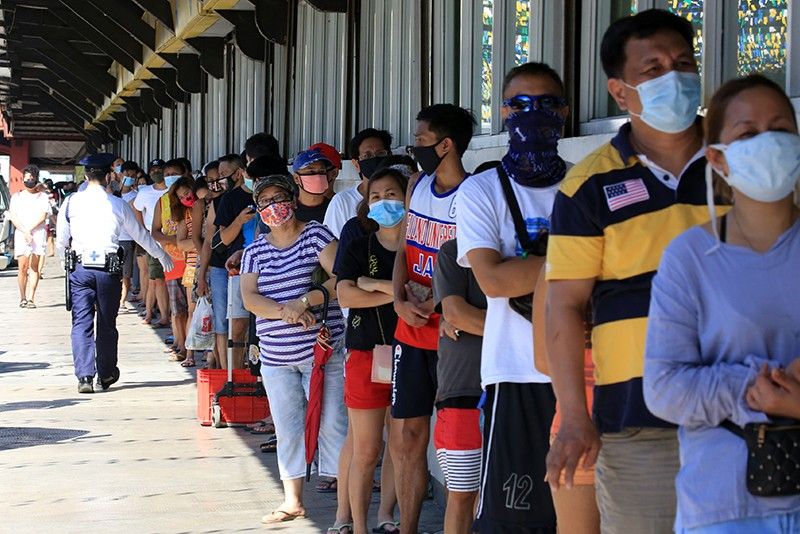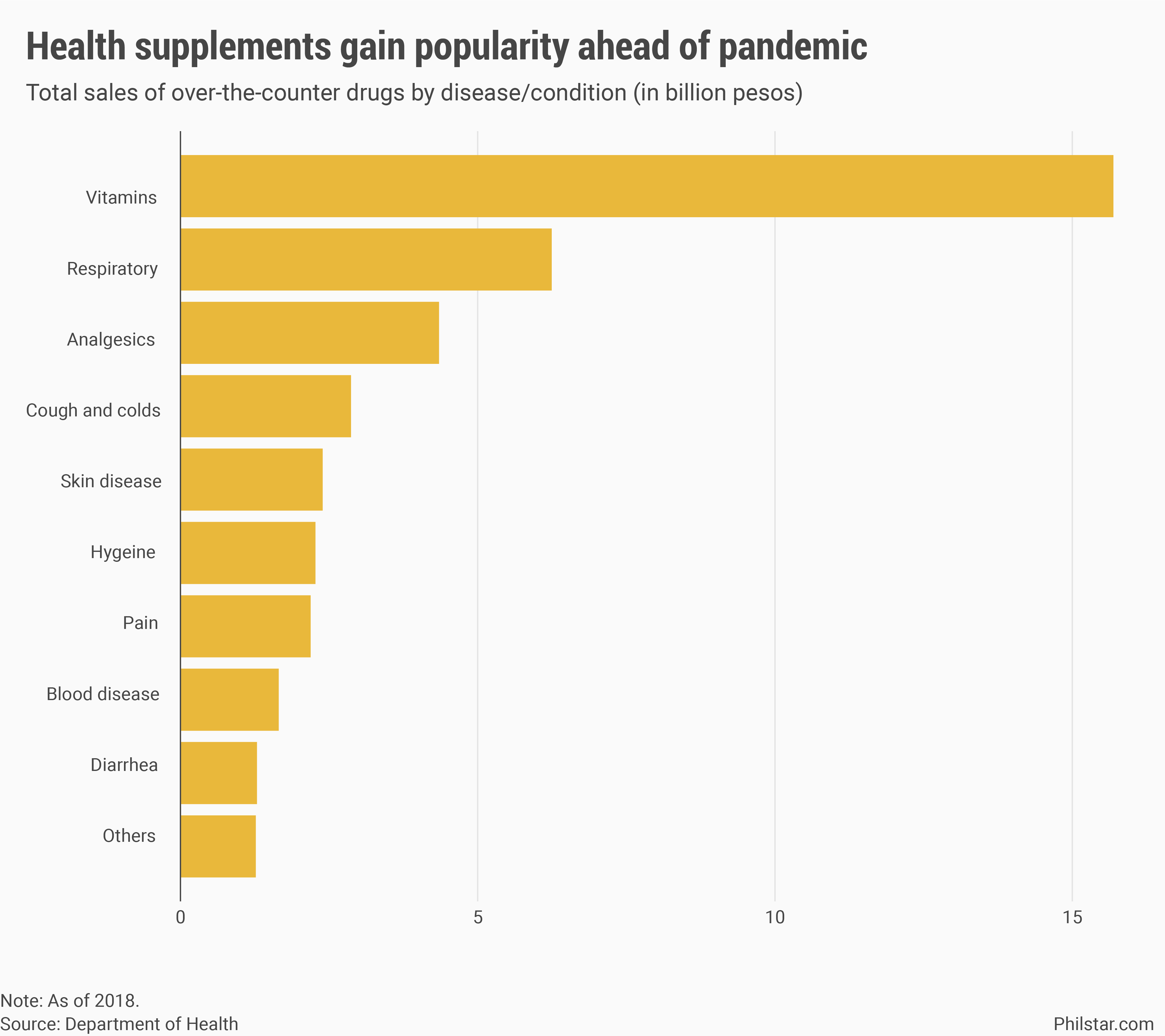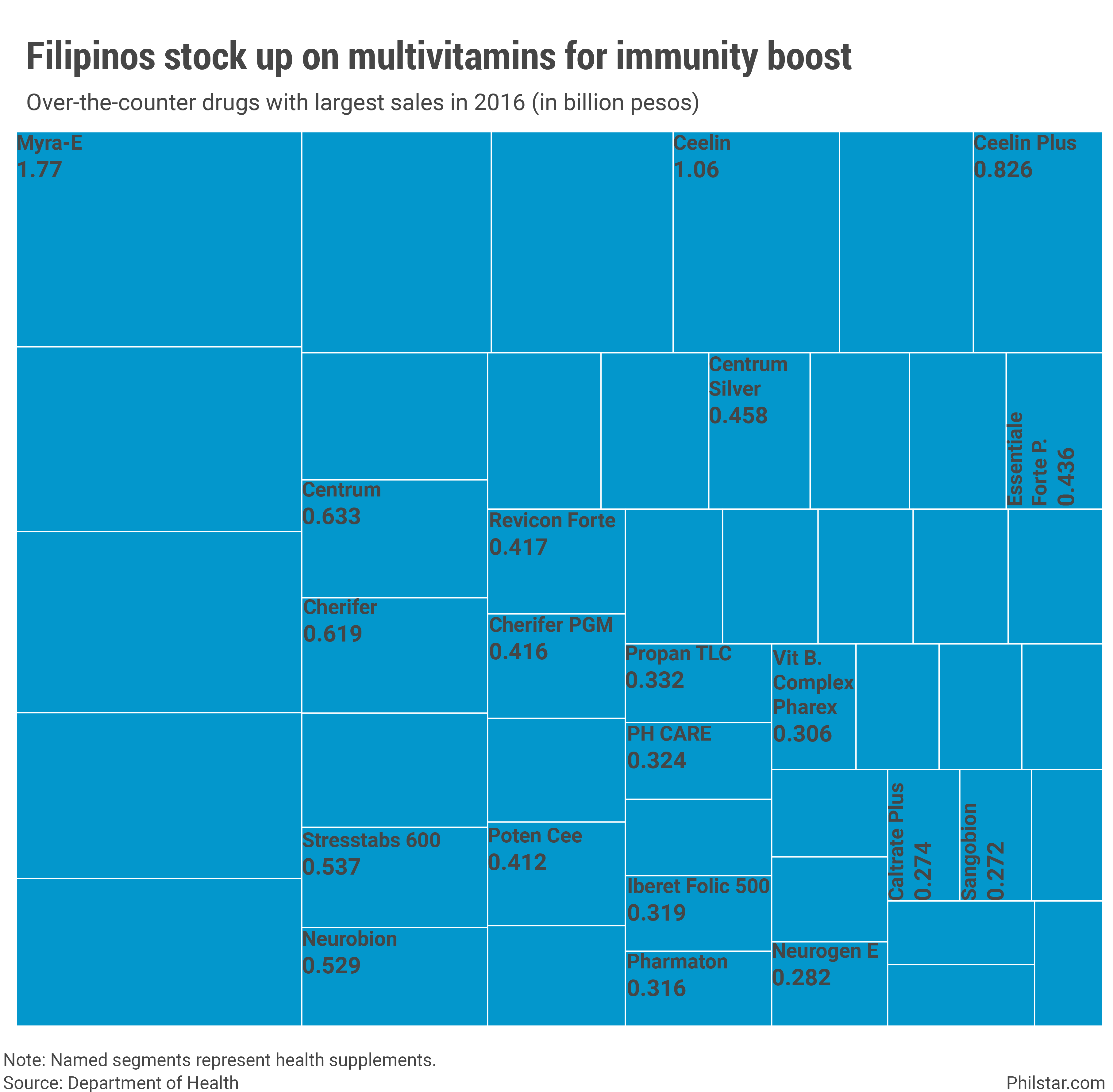Pandemic fortifies Filipinos' splurge on multivitamins

MANILA, Philippines — Going down with a flu these days is a no-no for Yssa Pera, a 28-year-old corporate sales executive at a local airline. So apart from trying to eat healthier, she recently added multivitamins to her daily intake believing it would build up her immunity. “Precaution is still better than cure,” Pera said in an online exchange.
Symptoms of typical cough and colds during the flu season are now dealt with more seriously, no thanks to the deadly novel coronavirus that also displays similar symptoms.
The shift to work-from-home arrangements also inadvertently lengthened usual 8-to-5 work hours, that people losing sleep instantly turn to health supplements for a boost, even as health experts themselves have repeatedly warned against their effectiveness.
“I believe that in a situation where the population is properly educated, people should spend their money wisely, on products that actually impact them medically. Meaning, if there are no approved therapeutic claims, why in the world would one want to spend hard earned money on that, right?” said Beaver Tamesis, president of Pharmaceutical and Healthcare Association of the Philippines, an industry group.
But even before the pandemic, health supplements are booming business. Sales of multivitamins grew 13% year-on-year to P15.48 billion in 2018. Health department data showed supplements accounted for 27% of total sales of over-the-counter (OTC) drugs that do not require doctor prescription.
In 2016, the latest period on which data is available, 32 of 100 best-selling OTC brands were some form of health supplement.
While becoming a fixture of drugstore shelves in recent years as more Filipinos turned health-conscious, the pandemic has only strengthened health supplements’ upward trend, a scenario that initially took big pharmaceuticals by surprise. Euromonitor International, a market research firm, projects this market to more than double to $701 million or around P33.6 billion this year.

“The COVID-19 pandemic in our country resulted in more awareness of the need for preventive healthcare, specifically immunity…This resulted in a significant increase in demand but this was tempered by shortages in the raw materials and packaging materials,” said Claire Papa, external affairs head at United Laboratories Inc., the country’s top pharmaceutical firm.
“Companies (local and foreign) supplying them could not cope with the global demand and the lockdowns in their areas,” she said in an e-mail.
Unilab is behind brands such as Conzace and Enervon-C, which in 2016 registered P1.2 billion in sales, according to health department data. Papa said supply constraints have since eased after the government relaxed quarantine restrictions. “Fortunately, we now know how to live with the virus and our manufacturing and distribution operations are slowly able to resume their regular operations,” she said.

Bayer Philippines, manufacturer of Berroca, a soluble multivitamins tablet, meanwhile learned to tap e-commerce platforms of drugstores to reach stay-at-home customers. This phenomenon has only solidified drugstores as the main source of Filipino medicines, helped by pharmacy chains such as Mercury Drug Corp. and Southstar Drug, where over 80% of drug sales happen every year.
“Bayer globally has seen a 24% growth in our nutritionals/supplements category for the first half of 2020 compared to the same period last year,” the company said in a statement to Philstar.com. “We can attribute part of the growth to the pandemic where more people are taking vitamins to boost immunity.”
Anthony Leachon, former government adviser to the COVID-19 task force, said that while the medical jury is still out for some health supplements, taking some vitamins like Ascorbic Acid and Zinc were proven to boost immunity. “Vitamins are not drugs which can treat COVID-19 definitely. They can help but they can’t cure,” he said in an online exchange.
Such is the thinking of Dave Balatbat, a 28-year-old financial adviser from San Mateo, Rizal, who constantly goes on pharmacy runs for his family during this pandemic. His only hope is that with the economy back in business, supplements will never run out of stock again.
“It’s the vitamins that were (always) first to go," he said.
- Latest
- Trending




























